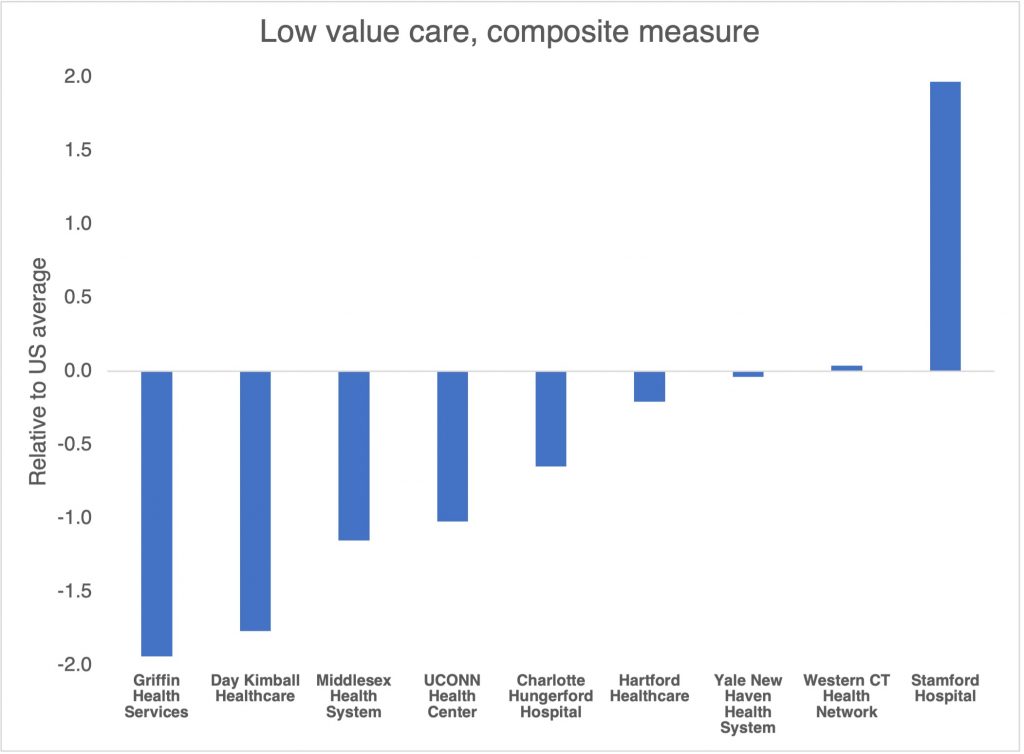Smart Savings
Legislators hear diverse voices favoring competition to control healthcare costs
Update 3/22/2022 — SB-416 passed the Insurance and Real Estate Committee unanimously. Twenty-one organizations and state residents testified in favor of SB-416 in Thursday’s Insurance and Real Estate Committee public hearing. Just three testified against. SB-416 would level the playing field in Connecticut’s healthcare market by prohibiting anti-competitive contract clauses used by large health systems…
Read MoreInsurance committee to hear bill to mitigate consolidation and lower healthcare costs
Download our testimony One of the main drivers of Connecticut’s rising healthcare costs is consolidation in the healthcare market, making health coverage increasingly unaffordable for consumers, employers, and businesses. Next Thursday, March 14th, the insurance committee will hold a public hearing on SB-416, An Act Promoting Competition in Contracts Between Health Carriers and Health Care…
Read MoreCTNJ op-ed: Governor’s plan to lower healthcare costs — what’s in and what’s missing
It’s an election year and voters want relief with healthcare costs and insurance premiums. Governor Lamont has proposed a slate of bills to address the problem. He has a good proposal to limit drug price increases, an unnecessary proposal to draft yet another report on what’s driving up costs, and a bad one to divert…
Read MoreCTNJ Op-ED: How much do CT hospitals spend on administration? No one knows
There’s a growing consensus that hospital prices are the main driver of rising healthcare costs and insurance premiums in Connecticut. The research lays the blame on consolidation in the market. Read more
Read MorePolicy options to control healthcare prices and protect from private equity
Healthcare service prices are the main driver of Connecticut’s rising health insurance premiums. The consolidation of hospitals and providers into large health systems has stifled competition, allowing prices to rise unchecked. Other states have taken action to protect competition in consolidated markets and it’s working. Connecticut needs to act. Private equity funds are buying critical…
Read MoreSign up for daily tips on the Art and Craft of Advocacy
You want to make a difference, but advocacy can be confusing, frustrating, and time-consuming. We can help. Sign up for Today’s Advocacy Tool – a month of inspiration, tips, and practical tools. Every weekday for a month, we’ll send an email with insight, best practices, and lessons we’ve learned from the updated CT Health Advocacy…
Read MoreICER report on fair access to drugs prompts six insurers to change coverage policies
A powerful new scorecard from the Institute for Clinical and Economic Review (ICER) assessing 15 of the largest US formularies for barriers to accessing 28 fairly-priced drugs found generally good policies for clinical standards (96% are fair), step therapy (99%), and prescriber restrictions (100%). However, the report found poor policies for cost sharing tiers (77%)…
Read MoreResponse to OHS primary care capitation defense
Today, the CT Health Policy Project responded to a letter from the Office of Health Strategy regarding concerns from 25 independent consumer advocates, providers, and organizations. OHS’s response to our offer to work together to improve the health of every Connecticut resident is very welcome. In that spirit, the letter clarifies a few misunderstandings of…
Read MoreCTNJ op-ed: It’s a miracle — Under new agreement, Medicare will negotiate drug prices
Democrats in Washington have negotiated a deal to allow Medicare to negotiate prices with drug companies. Americans pay 2.56 times higher drug prices than residents of other developed countries. It has always been embarrassing that federal law prohibits Medicare drug price negotiation and the FDA can’t consider costs in drug approvals. The US is the…
Read MoreConnecticut hospital systems vary in reducing low-value care
A new report published in JAMA Internal Medicine on low-value care provided to Medicare beneficiaries at the health system level offers actionable tools to improve effective care on the ground. Healthcare services that provide little or no health benefit, may harm patients, increase costs, and waste resources are low-value. Examples include prostate specific antigen testing…
Read More







